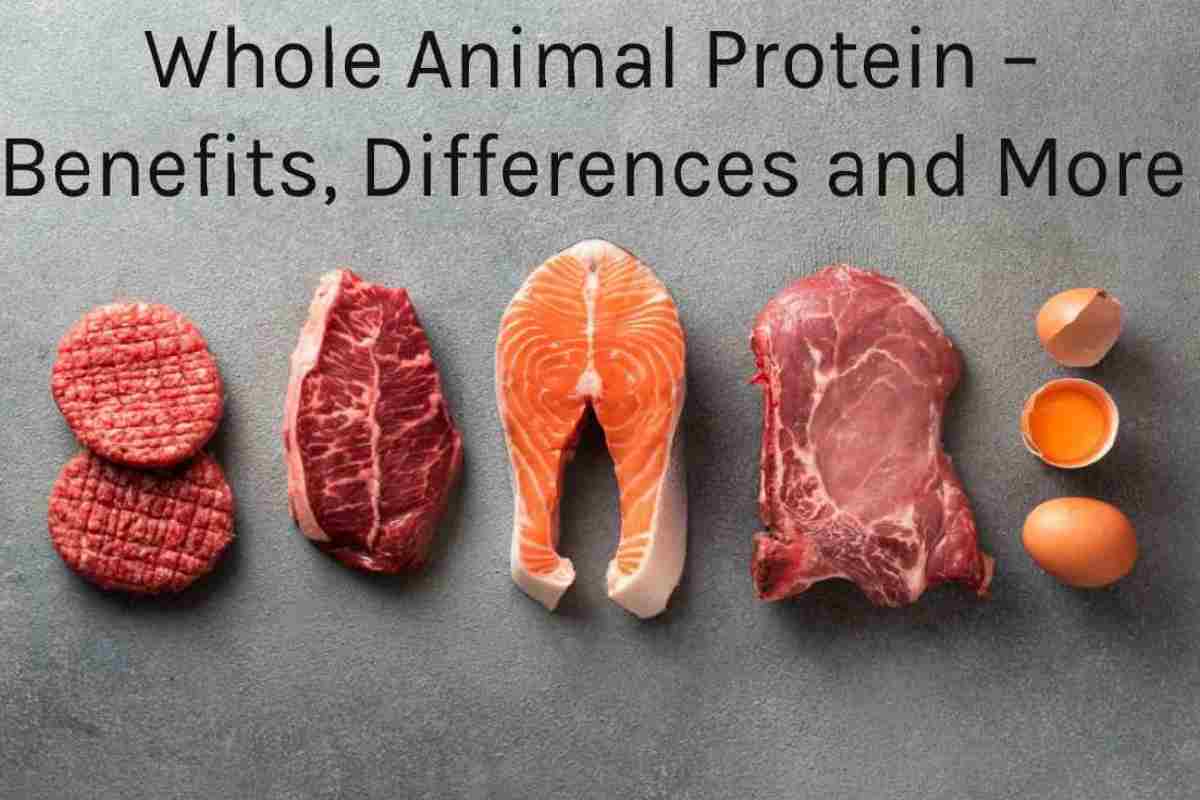Table of Contents
Animal Protein
Animal protein is present in foods such as meat, fish and shellfish, eggs, milk and dairy products. These types of proteins have a higher biological value than proteins of plant origin; that is, they have a more significant presence and proportion of essential amino acids (those that our body cannot produce, and it is necessary to provide them with the diet).
Foods that are a source of animal protein also have different fat levels from the exact origin. For this reason, it recommends moderate red meat consumption due to its higher saturated fat content in favour of white meat such as chicken or turkey. On the other hand, white and blue fish, in addition to being a source of animal protein, provide heart-healthy fats such as omega-3 fatty acids.
What are the Benefits of Consuming Animal Protein?
When the human being consumes animal protein, he obtains a more significant number of defenses. For example, eating beef, pork, chicken, fish, or eggs complements the essential amino acids for the body, such as lysine, which favours calcium absorption and the creation of antibodies.
According to nutritionists, proteins of animal origin are more nutritious and easier to assimilate, up to 90%, compared to the properties of legumes, vegetables or nuts.
The balanced consumption of proteins of animal origin provides athletes with gaining muscle mass and contributes to the speedy recovery of patients after surgical interventions or with chronic degenerative diseases. Likewise, it compensates for the low iron that, in severe cases. But on the other hand, it can cause iron deficiency, anemia or insufficiency of red blood cells that affects the oxygenation of the body.
What are the Differences between vegetable and animal proteins?
The critical difference between animal and vegetable proteins is their nutritional quality. Animal proteins contain all the essential amino acids our body is incapable of creating by itself and therefore are considered of high biological value. They are added complete and cover all our nutritional needs. Non-animal proteins are low in certain amino acids and must be combined to provide everything our body needs.
How to avoid excess Animal Protein?
According to Gimeno, overeating proteins of animal origin in developed societies is mainly due “because meat and fish portions are normally larger than we should consume. Therefore, the fillets usually marketed are larger than what we need and, in addition, the number of weekly servings in the standard diet of an adult has also increased”.
Several observational studies offer clues about the possible consequences of this increased animal protein in the diet. In them, red meat consumption link to an increased risk of heart disease, cerebrovascular accident or stroke and premature death.
However, the nutritionist warns, “other subsequent research suggests that the problem stems from processed meat ” and, specifically, the amount of saturated fat and cholesterol present in it, which has led to its association. “with cardiovascular disorders, obesity, kidney and liver disorders and calcium assimilation problems”. In contrast, these risks are not link to fish consumption and other white meats, such as turkey and chicken.
Here are some tips for proper and balanced consumption:
Proteins of animal origin: reduce the weekly rations and adapt them to the needed quantities.
Plant-based proteins: consume legumes and cereals together to achieve protein supplementation and, in this way, obtain higher quality proteins.
“The most important item is to have a healthy and balanced diet, combining foods from the different groups and varying those from a certain group. This way, obtaining all the nutrients necessary to carry out the body’s different functions is ensured”.
Animal Protein Sources
Some animal products with complete sources of protein are:
- Various types of eggs.
- Dairy foods, such as cheese, milk, and buttermilk.
- Red meats of veal, beef and venison.
- Poultry such as chickens, turkeys, and quail.
- Other lesser-known meats such as wild boar, hare and horse.
Conclusion
In short, animal protein is beneficial and necessary for the body’s functioning, but much less than what is currently consumed. So choose what kinds of high-protein foods you should eat. As with most things, moderation and variety are the keys.

